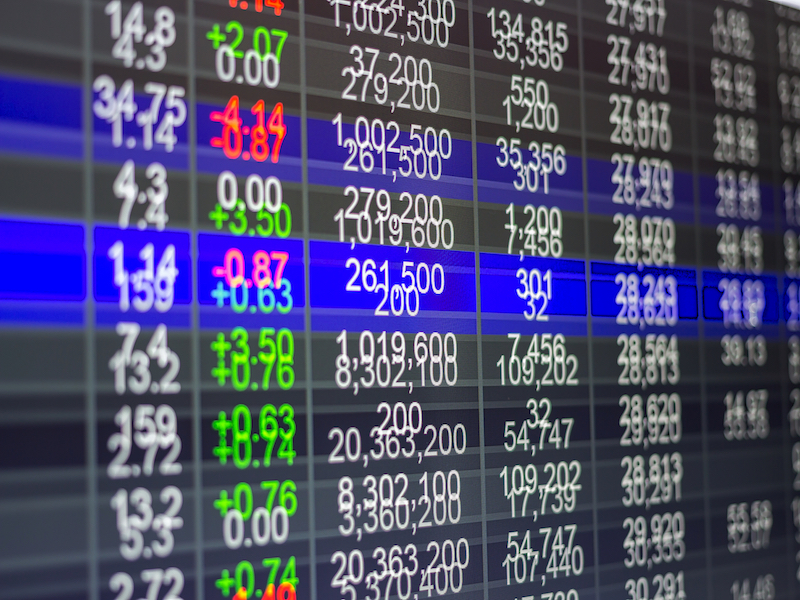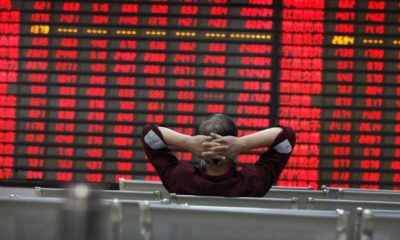bank
Triggers to the Next Stock Market Correction

The question still is; is the possibility of having the next stock market crash imminent?
Well, before we sail further, let’s go through this historical stock market correlation chart for a minute:

Just over the past one and half months, an outflow of $44 billion has been witnessed in stocks according to a report provided by the wealth division of Bank of America (Merrill Lynch).
To put statistics right, this massive movement of money out of stocks is the largest since last August, a month which saw equities face a similar fate of not-so-good market conditions.
And, it’s also apparent from the amount that retail money has played no role in this outflow, but it’s rather professional money that’s exiting the market.
[ms_divider style=”normal” align=”left” width=”100%” margin_top=”30″ margin_bottom=”30″ border_size=”5″ border_color=”#f2f2f2″ icon=”” class=”” id=””][/ms_divider]
[ms_featurebox style=”4″ title_font_size=”18″ title_color=”#2b2b2b” icon_circle=”no” icon_size=”46″ title=”Recommended Link” icon=”” alignment=”left” icon_animation_type=”” icon_color=”” icon_background_color=”” icon_border_color=”” icon_border_width=”0″ flip_icon=”none” spinning_icon=”no” icon_image=”” icon_image_width=”0″ icon_image_height=”” link_url=”https://offers.thecapitalist.com/p/58-billion-stock-steal/index” link_target=”_blank” link_text=”Click Here To Find Out What It Is…” link_color=”#4885bf” content_color=”” content_box_background_color=”” class=”” id=””]This one stock is quietly earning 100s of percent in the gold bull market. It's already up 294% [/ms_featurebox]
[ms_divider style=”normal” align=”left” width=”100%” margin_top=”30″ margin_bottom=”30″ border_size=”5″ border_color=”#f2f2f2″ icon=”” class=”” id=””][/ms_divider]
But Why?
That's a question deserving a very amicable answer.
However, to answer it accurately, or at least close to that, we need to pose the following question altogether, which has been our concern all along; what will lead to a grave and persistent setback in the stock market prices over the globe?
The answer to this question, in a broad sense, is pretty simple:
- A rise in uncertainty and the level of risk, plus/or
- Worsening of the conditions surrounding short-term corporate profitability and
- The capability of generating cash flows.
All that’s being portrayed here is that there are some probable headwinds which, one way or the other, can’t be overlooked, and any one of them could be the key to reversing the prevailing market state.
These candidates under discussion constitute:
China
Our big players in the market curtain-raises the list for us here.
China had a big hand in the last August saga.
Her economy is on the decline; that’s clear to see.
Her first-quarter GDP was adamant, 7% at that.
But, taking it head to head with the previous quarter’s 7.3%, it’s not as strong.
Again, looking down the lane from 2009, the 7% growth singles out itself as the slowest quarterly growth rate.
The slowing real estate, as well as the declining business investment, could now see the full year growth expectation of China at 6.7%.
Rising interest rates and Valuations
The rates and economic outlook run concurrently.
That has to hit the nerves in our brains now and then.
Thus, a positive perception should strike us whenever there is an increase in rates alongside an improved outlook, not unless, we witness an endogenous increment in bond yields or a monetary policy misunderstanding (mistake).
We cannot ignore such a possibility, and in case such a scenario starts materializing, central banks are bound to react.
On the other hand, the Forward Price-to-Earnings ratio (forward P/E) for the Standard and Poor’s 500 (S&P 500) is in the 86th percentile over the last four decades which signify that stocks are quite pricey.
The graph below tells it all:

At the time, four consecutive quarters of sheer negative earnings growth have also been witnessed, a state which, since the financial crisis, has not come to pass even once.
The Federal Reserve Policy
The economy has a higher probability of slowing down from high-interest rates since they would, in turn, increase the borrowing rates, an act that could lead to increased risks of defaults.
Additionally, a rate hike would commence lending a hand to savers over speculators.
The speculations as well will start to set maximum limits to debt accumulation.
The Presidential Election; Particularly for the United States
Here comes another controversial factor to debate about but which has a significant impact on triggering a stocks market correction.
How do these two match up as investors? Let’s see.
Suppose Hillary Clinton has won.
The chances of a bright note for stocks will be slim as she is proposing a top rate of 43.4% on short-term capital gains tax.
If it’s Donald Trump who becomes the victor, on the other hand, there's no clarity for investors on what to expect; something they do not cherish that much.
So, who happens to win the election is not as important market wise.
What matters is the statistical measure of the variability of returns for particular securities or market indices (volatility) from the period of run – up to the D-day of the election.
Oil Prices
Finally, let’s close this chapter with the black gold.
As it stands, a decline in oil prices signifies a positive supply shock upon which the economy, as well as the equity markets, should profit.
One can see below the apparent change in the oil prices themselves since Obama's election:

The difference in the rates was evident when there was a wide spread of optimism by a drop in oil prices a year ago.
Oil prices dropping explicitly show the extent to which the United States stock markets have become reliant on profits earned from the energy sector.
If the oil prices follow a gradual upward trend, then a positive impact on the United States should be imminent via higher profits in the energy sector while Europe expects a sorry tale.
In Summary
- It’s about time. Several alternatives of possible market correction are available.
- The most probable triggers are likely to be tensions, particularly in the emerging markets, plus/or a rushed rate increase in the United States.
- A full-blown bull market is still much more of a dream and is certainly unlikely.
- Before rallying this week, stocks had gradually been slowing over the last few weeks. Whether this is the final break-through, we can’t tell, but, we can sit tight and wait and see.















